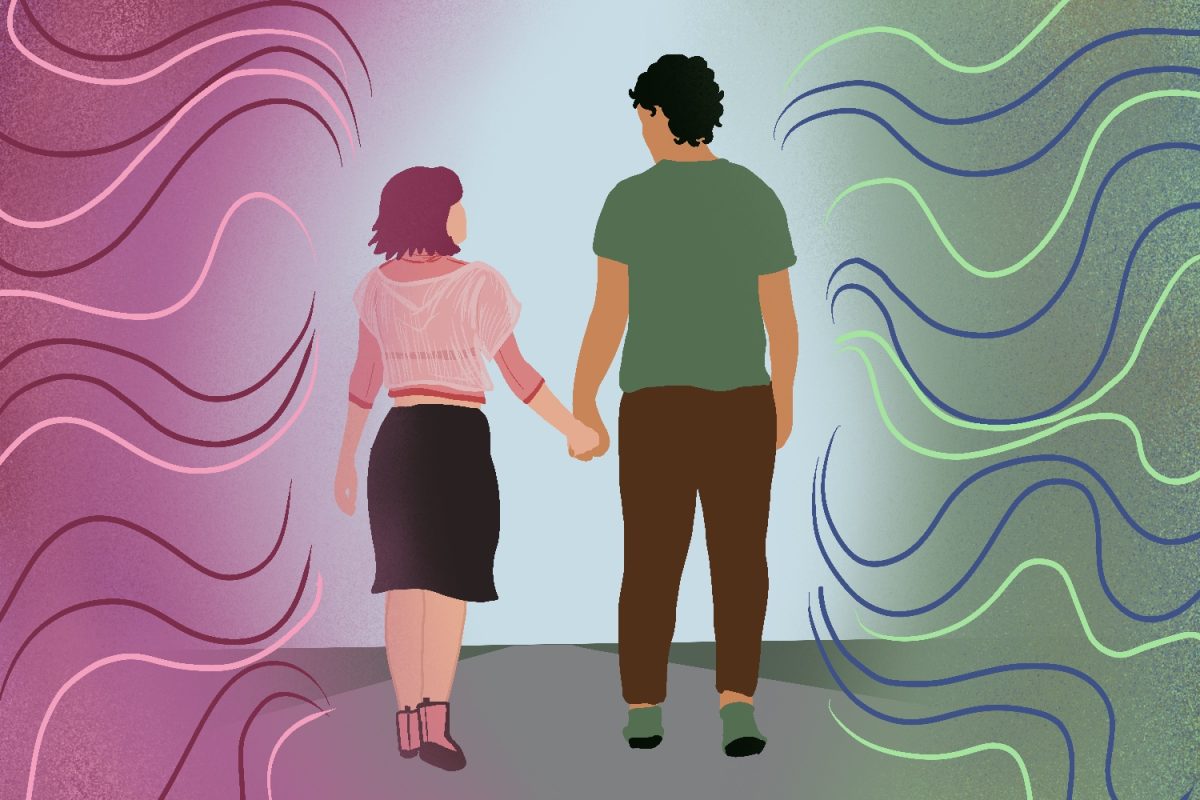Dear Abby: I really love my boyfriend, okay? He’s a wonderful guy. But sometimes I feel pressured to be intimate even when I don’t want to be. Of course, everything we do is consensual, but there are times when my own internal desire to please people leads me to say “yes” to things I don’t want to do. It’s not his fault, but how do I get out of this mindset?
We talk a lot about consent in dating and hookup culture — and rightly so. Consent is the foundation of any ethical intimate encounter. But there’s another layer to this conversation, one that’s harder to spot and even harder to admit: the subtle pressure to say “yes,” even when we’re not fully in it.
Not because someone forced us. Not because we were coerced. But because we didn’t know how to say no — or didn’t feel like we could.
This isn’t about assault or misconduct. This is about the far more common experience of internalized pressure — and the quiet role that people-pleasing plays in our intimate lives. Whether it’s something as casual as a hookup or as serious as a committed relationship, many of us find ourselves torn between our needs and what we feel others need.
We often think intimacy is this big give-and-take sort of thing that is one of the most essential things in a relationship. In reality, these acts are bonuses of enjoyment that are supposed to be mutually shared by both parties. But the more I thought about it, I couldn’t help but wonder: How many of us really feel like we’re under pressure when it comes to being intimate?
The people-pleasers
Here’s the problem: Society — and let’s be honest, our own internal scripts — have trained many of us, especially women, to believe being agreeable equals being lovable. We are conditioned to believe that if someone desires us, we owe them something in return.
We come to believe that rejecting someone, even gently, is rude, or mean, dramatic or — God forbid — “leading them on.”
So we say “yes” even when we’re unsure. We say “sure” when we mean “maybe later.” We say “okay” when our stomachs are tightening into tiny pretzels of hesitation.
That’s not enthusiastic consent — that’s customer service.
Many people experience this dynamic even more acutely within committed relationships. When you love someone, it’s natural to want to make them happy — to give, to show up and to offer joy in whatever ways you can. That impulse often comes from a beautiful place of care and connection. But it’s important to remember that your partner’s happiness should never come at the cost of your own well-being.
Think about it: Would your partner truly enjoy being physically intimate if they knew you weren’t fully present or into it? Most likely, the answer is no. Real intimacy thrives on mutual enthusiasm — not silent obligation.
Just as we value quality time, quality intimacy matters just as much — if not more. When we override our own discomfort to keep the peace or avoid feelings of awkwardness, we don’t just create disconnection in the moment. We can quietly erode trust, safety and emotional closeness over time.
And to be absolutely clear: This isn’t about a lack of love. Saying “no” doesn’t mean you love your partner any less — it simply means you’re human, with needs, moods and boundaries of your own. Honoring those boundaries is both an act of respect to yourself and to your relationship.
Even hookups allow for choice
Many people fall into the trap of thinking, “Well, I said ‘yes’ to this, or I knew what I was getting into,” and so they go along with something that no longer feels good, simply because they don’t want to be seen as flaky, uptight or “ruining the vibe.” This is especially true for people who’ve been socialized to prioritize others’ comfort above their own.
But here’s the thing: Casual doesn’t mean careless. Even casual encounters require ongoing check-ins. Your partner should always be attuned to this by asking, listening and respecting your boundaries as they evolve.
Another important nuance: Consenting to one thing doesn’t mean consenting to everything. Maybe you’re okay with kissing but not with going further. Or you’re fine with touching but not with oral sex. Consent isn’t a blanket “yes” — it’s specific, ongoing and always up for re-negotiation. Recognizing and respecting that is key to truly ethical and enjoyable intimacy.
There’s nothing wrong with wanting closeness, connection or just plain fun. But those experiences are only truly fulfilling when they’re mutual — not when one person is mentally clocking out while trying to seem “cool” about it.

Being wanted vs. wanting
I’ve realized that at the heart of this conversation is a much deeper question: Are we choosing this experience, or are we simply responding to being chosen?
Being desired can feel powerful. It can be flattering and even intoxicating. But true agency — the kind that builds real safety and connection — comes not just from being wanted, but from actively wanting in return.
That means slowing down, paying attention and tuning in to the quieter signals beneath the surface-level “yes.” It means holding space for desire to be mutual — not assumed — and for consent to be a dialogue — not a formality.
Because the truth is, you don’t have to go along with anything that doesn’t feel fully aligned with your needs, even if it looks good on paper, if you already said yes or if you’ve done it before.
Most importantly, you don’t have to do everything the other person wants, even if you love them deeply. Their adoration for you should never inflate or dissipate based on your response to certain requests.
Intimacy, at its best, isn’t about performance. It’s about presence.
And presence starts with you.




























































































































